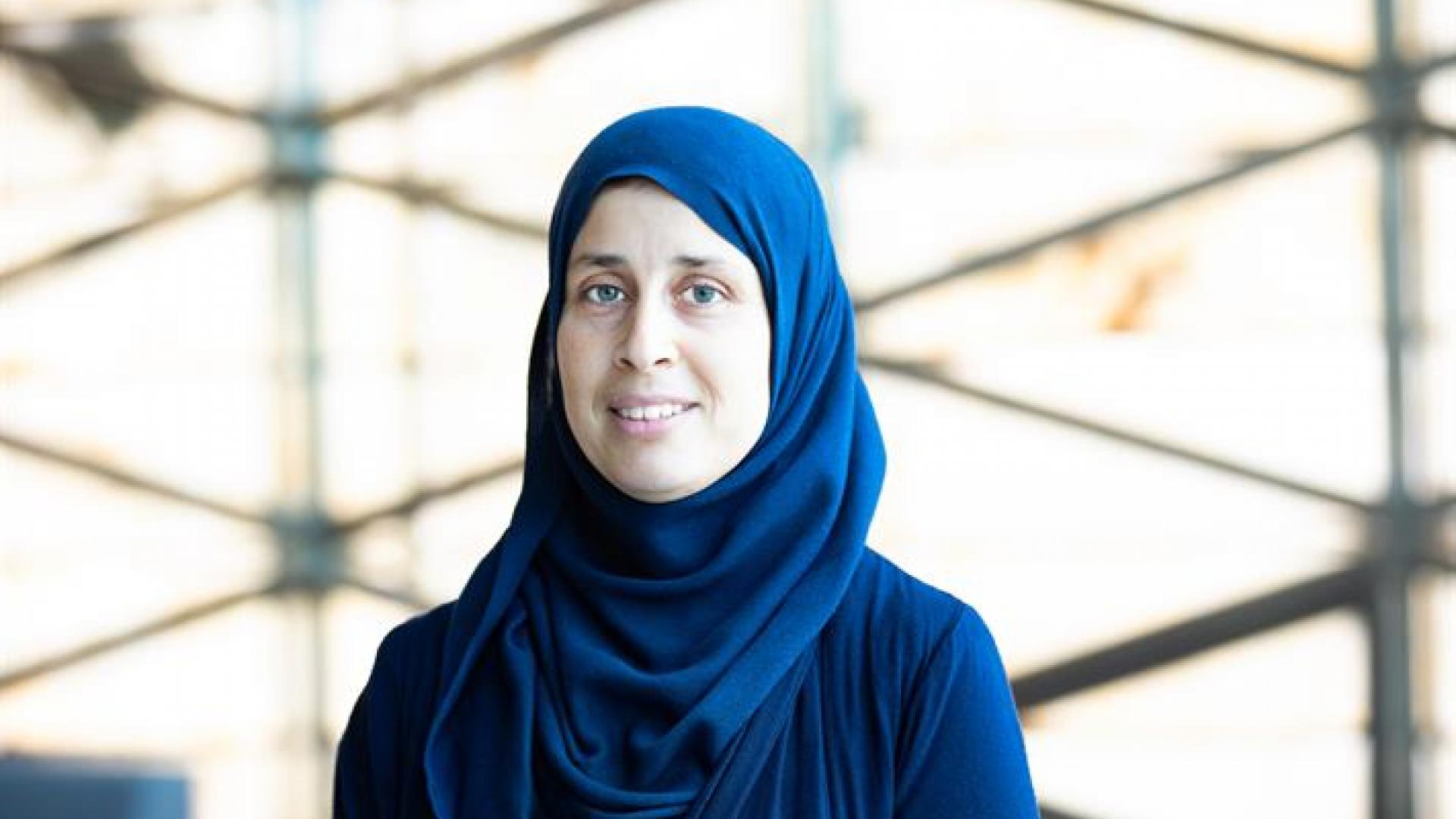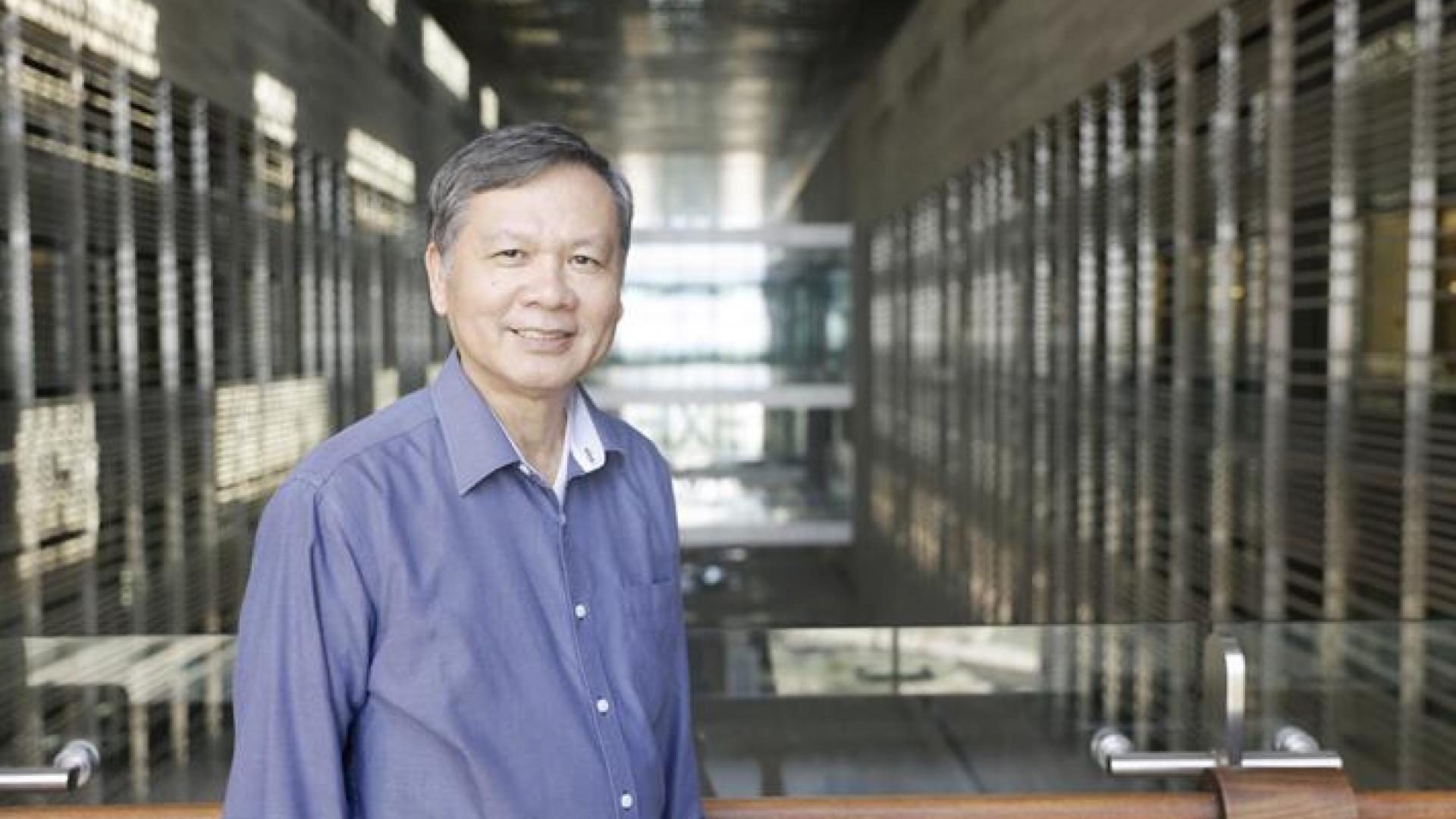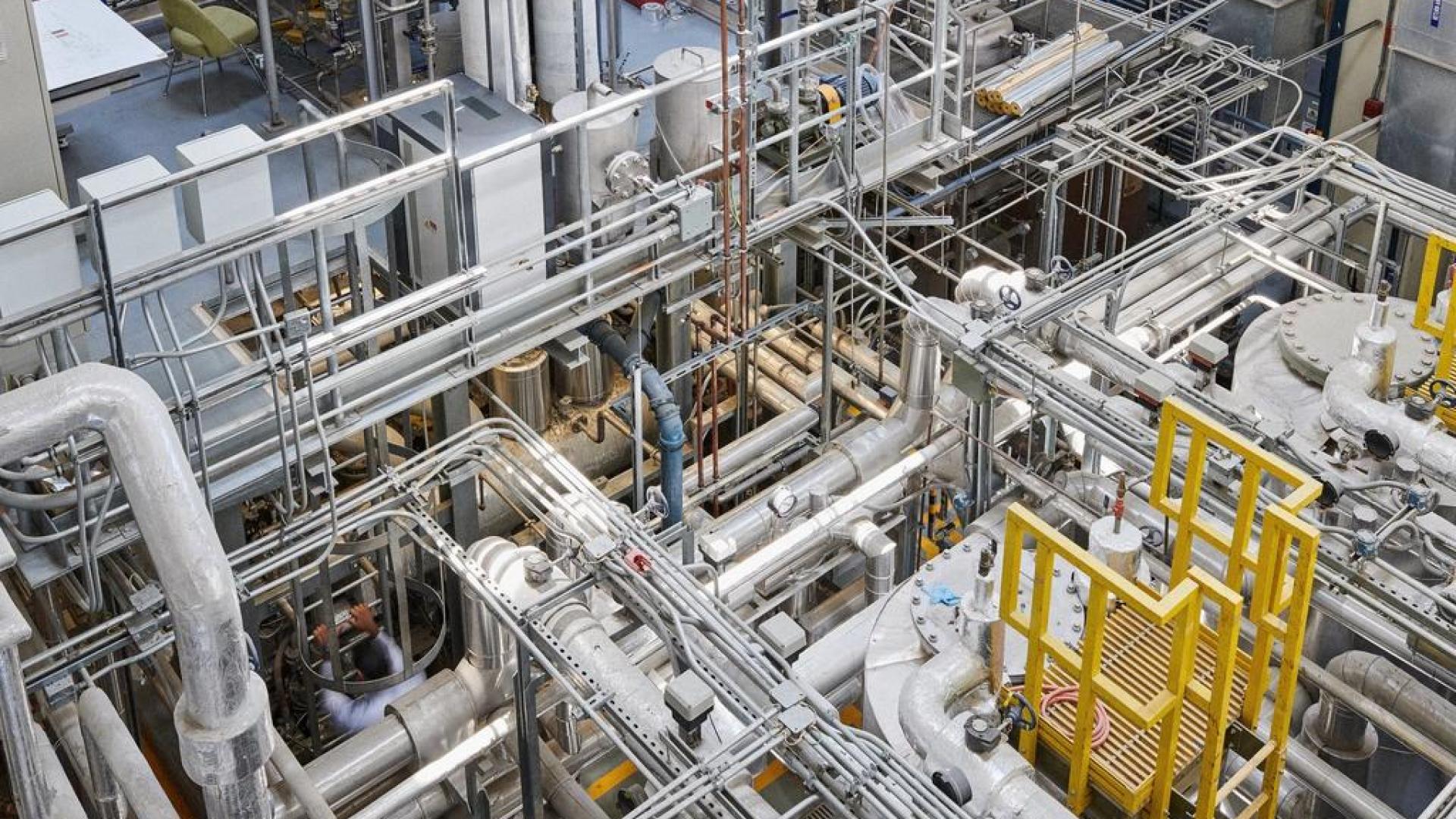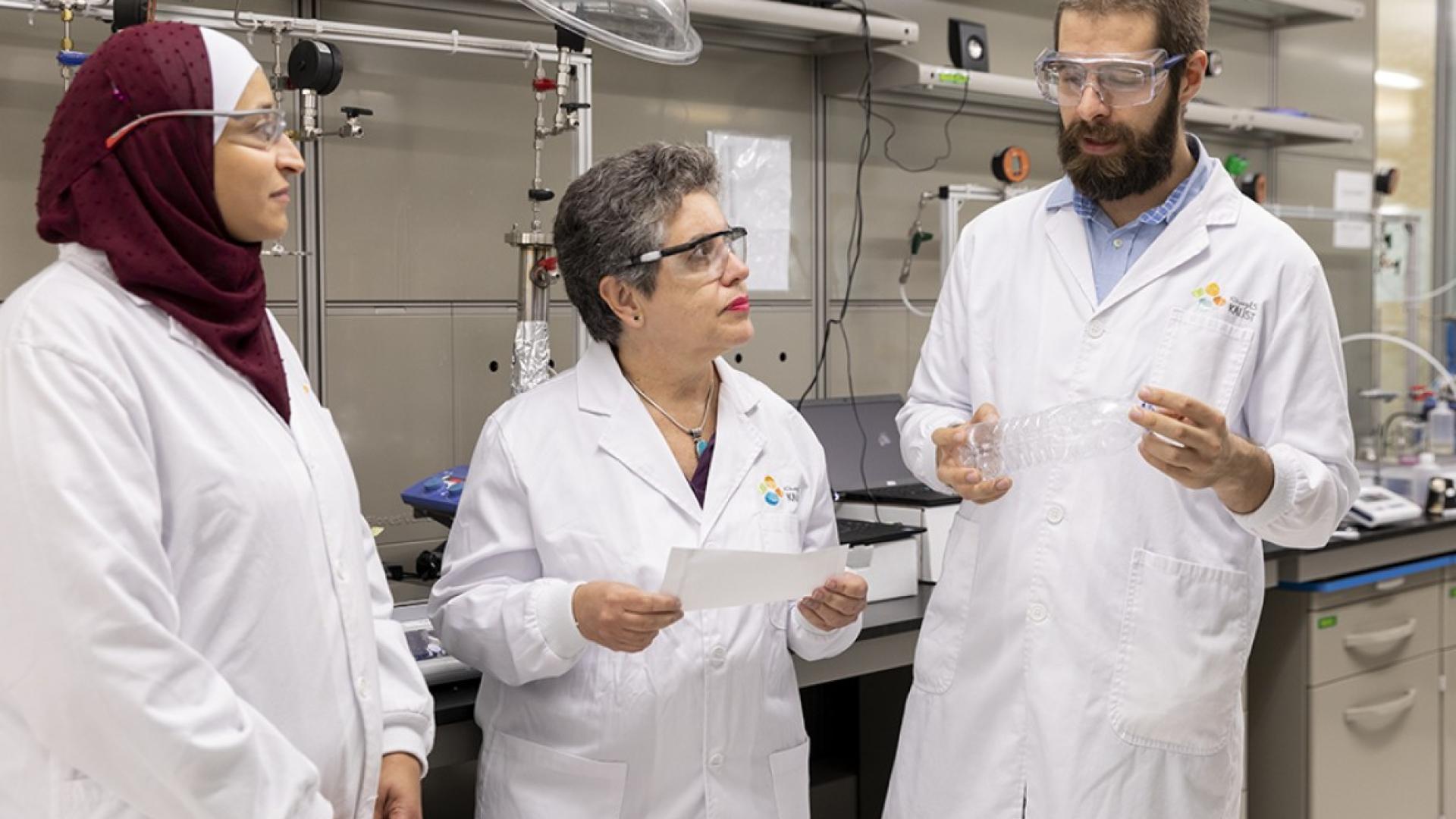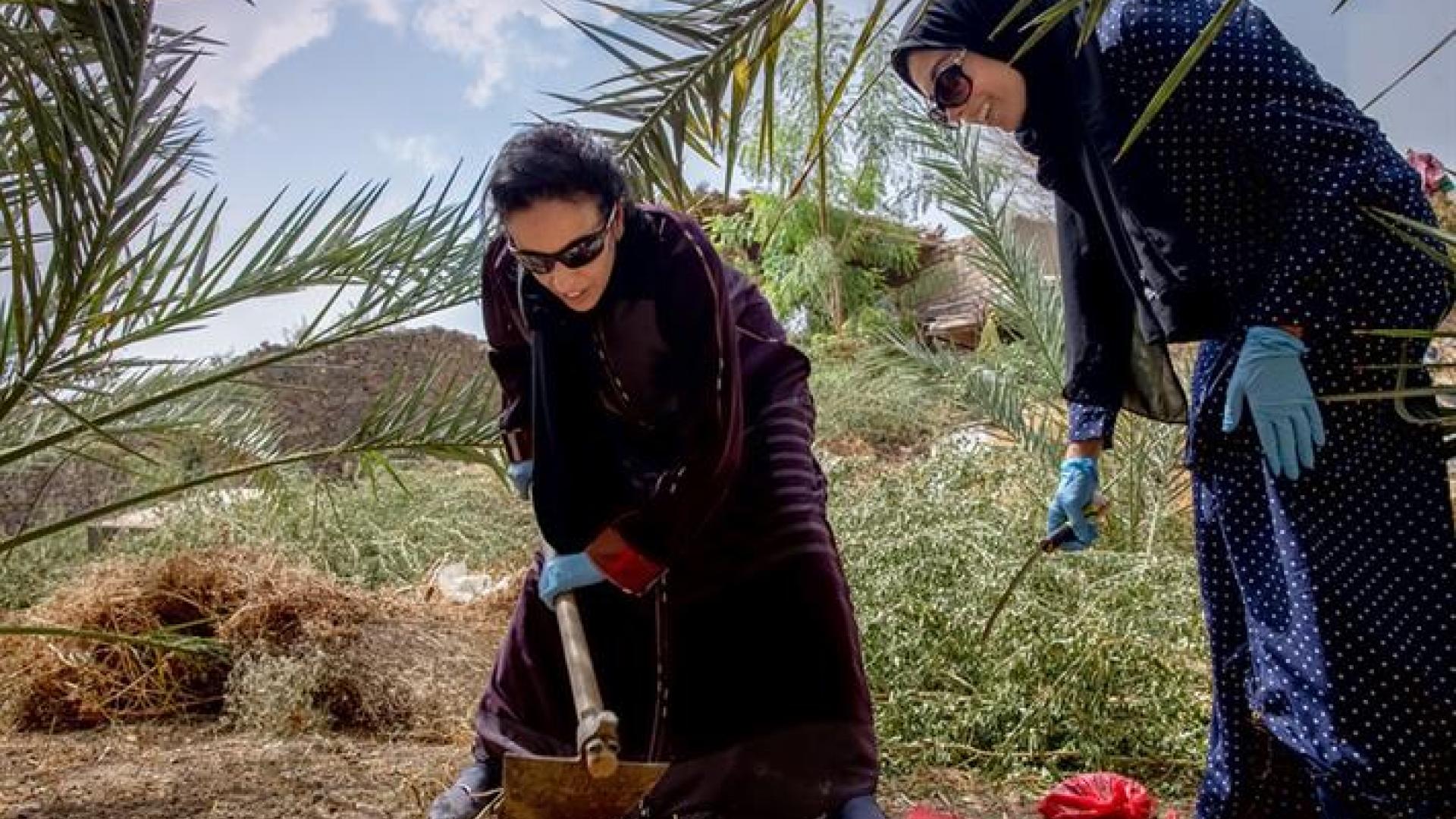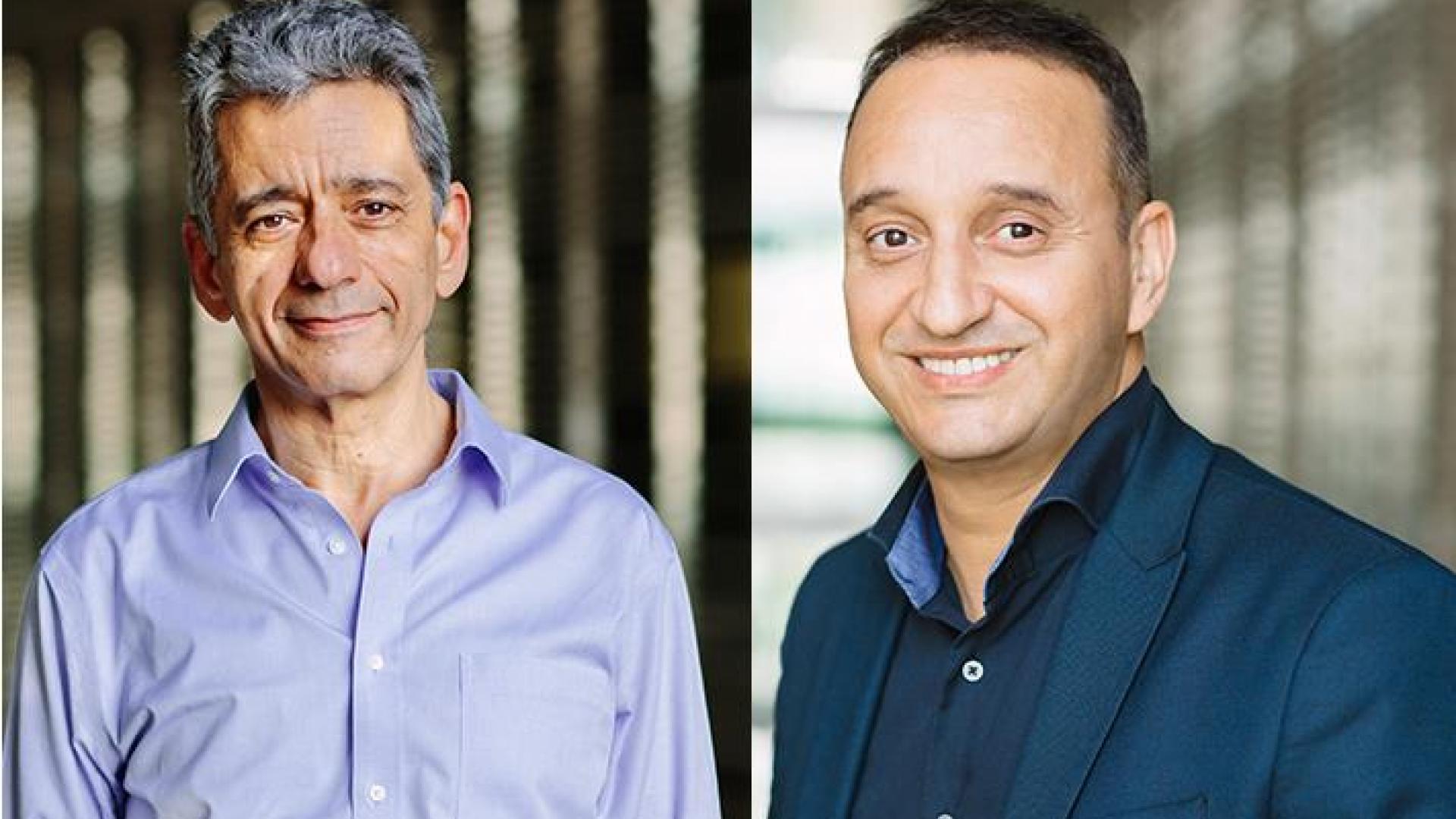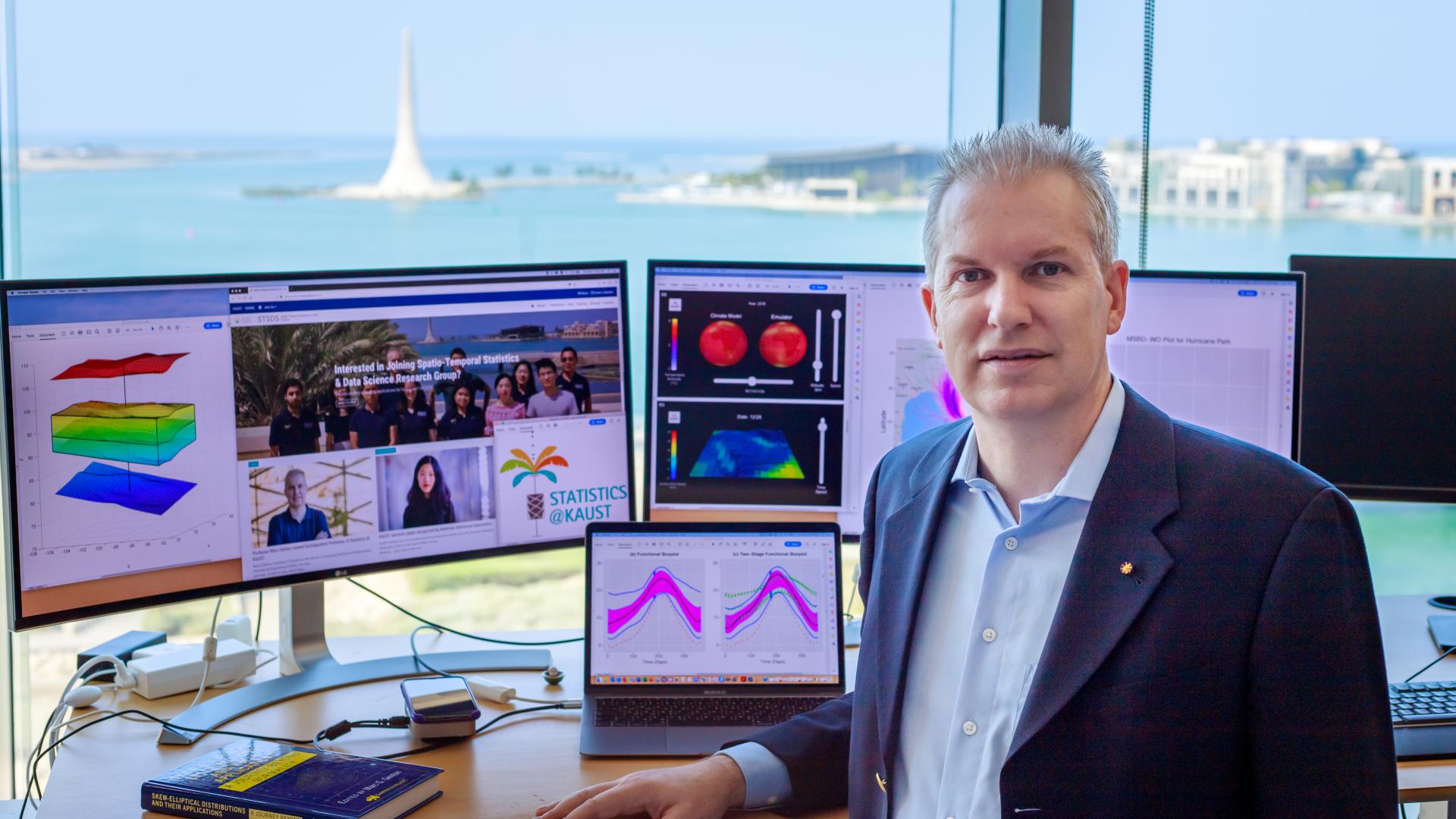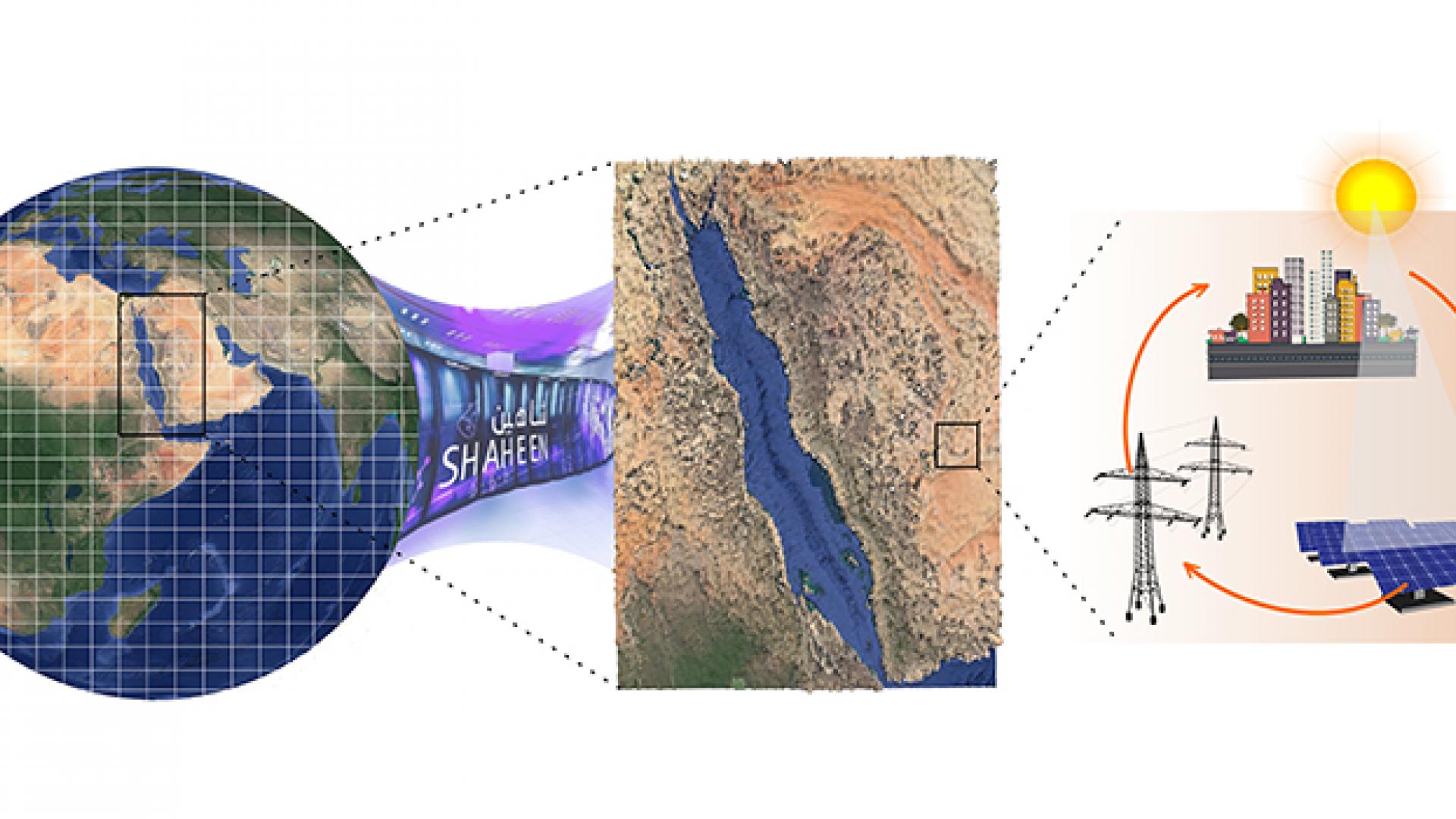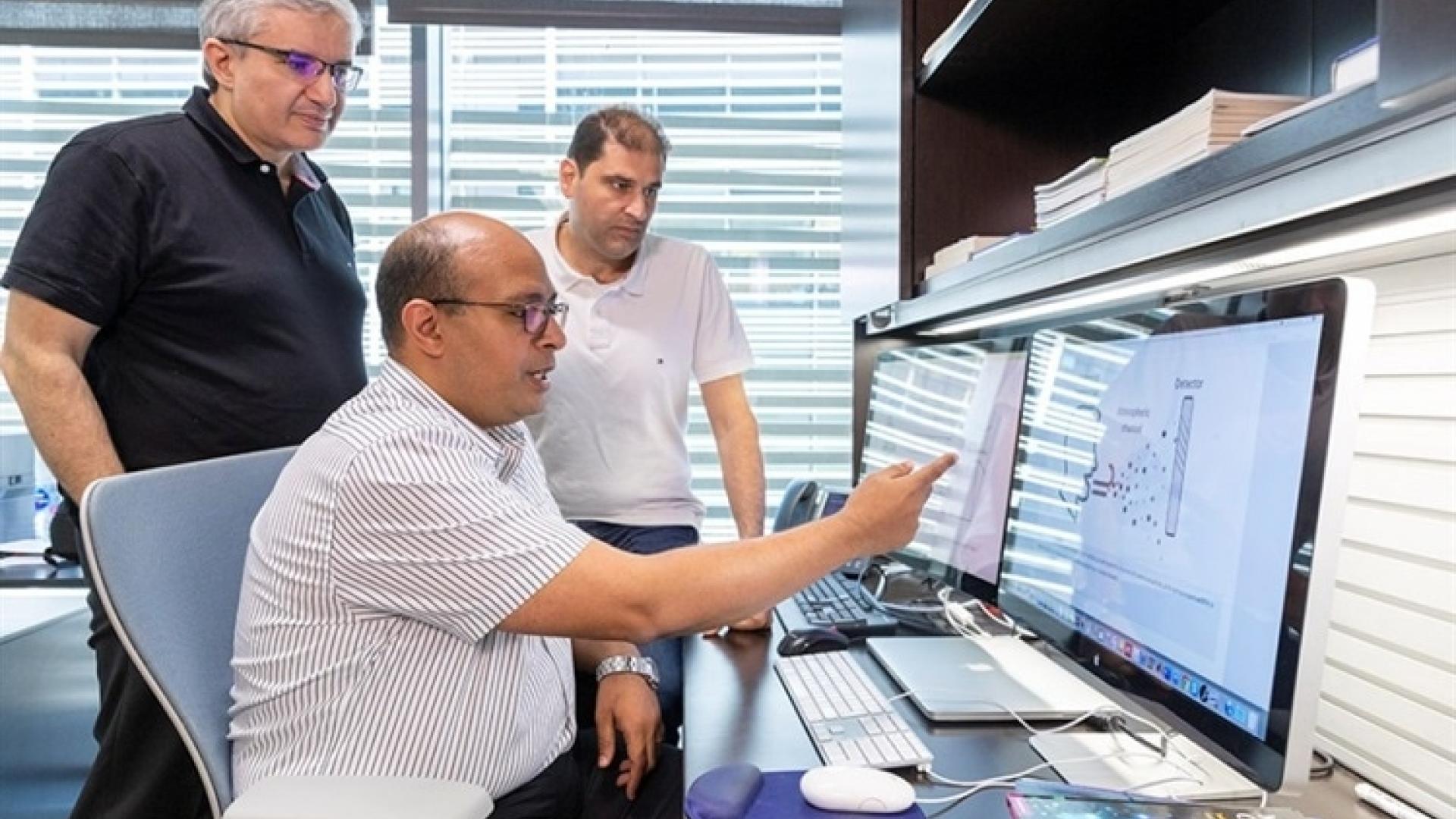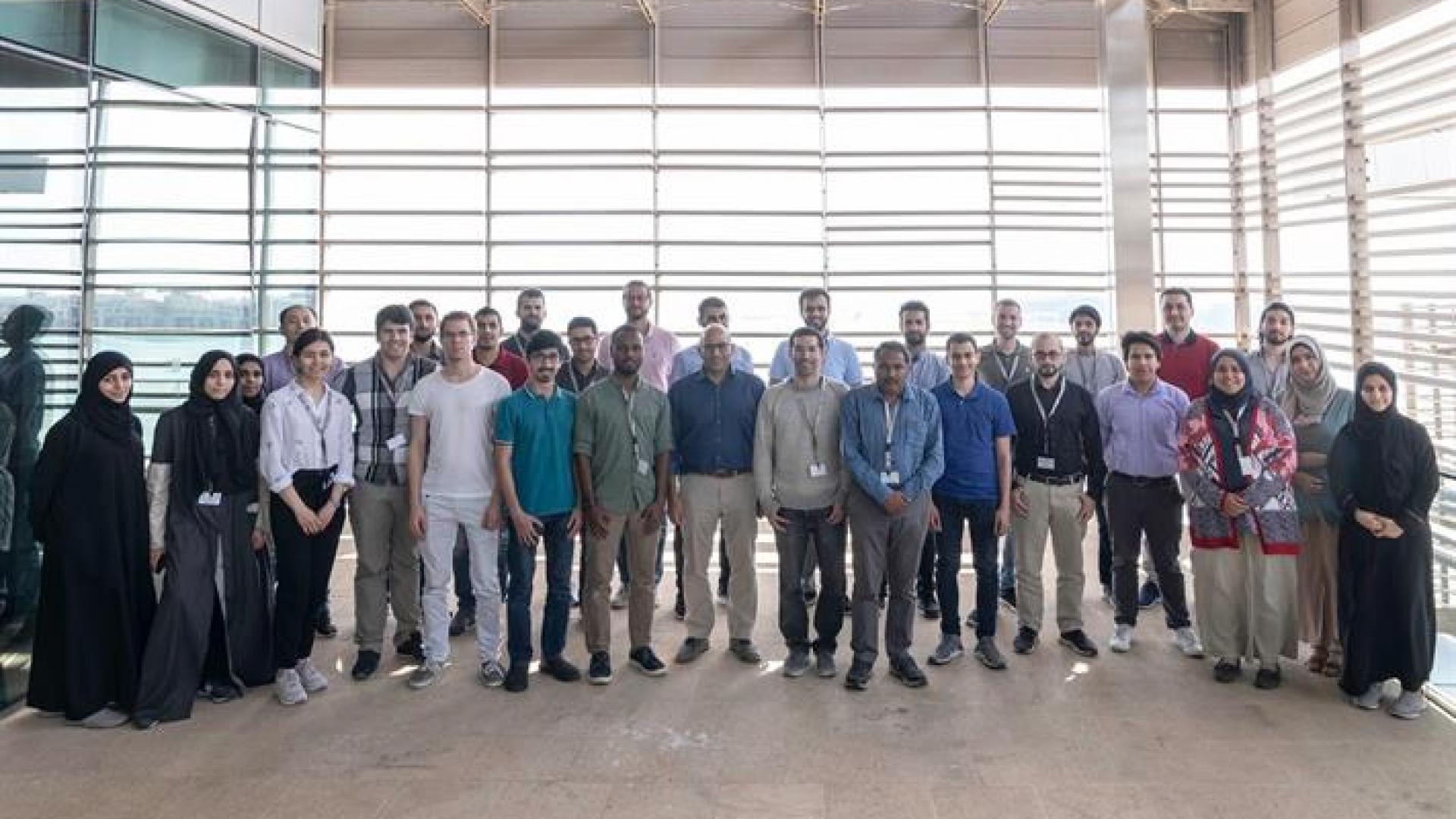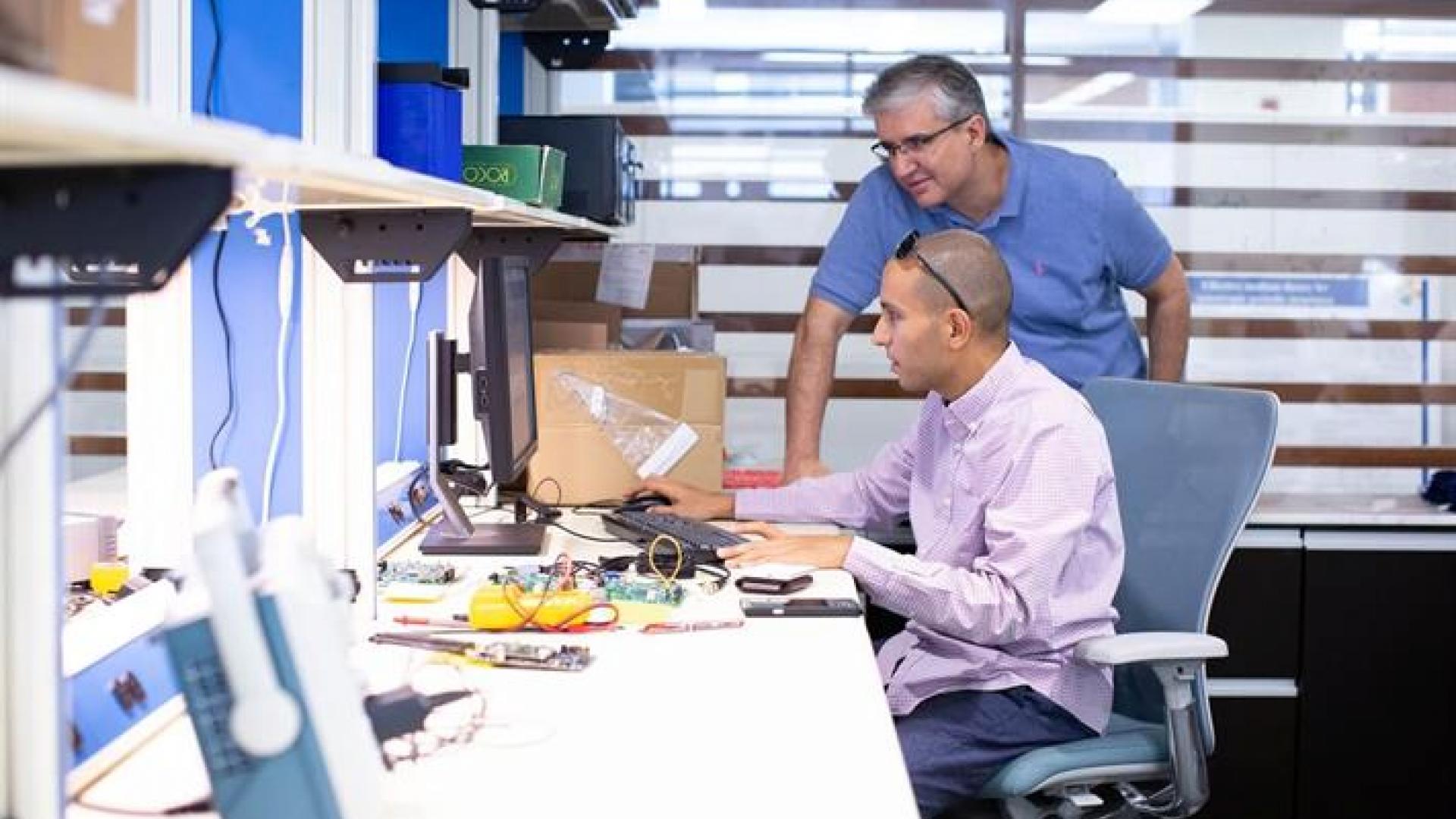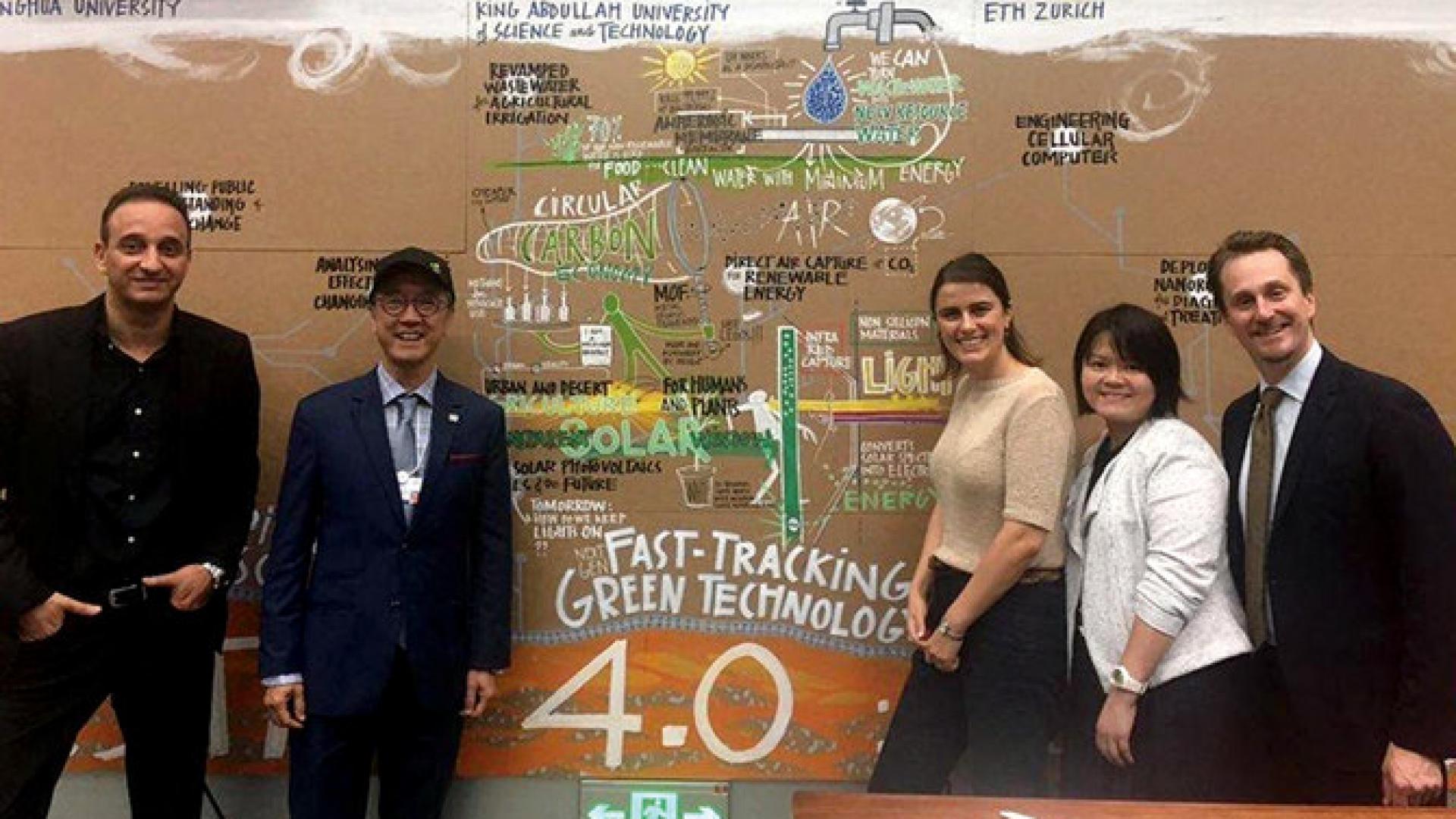-By A. Ortega, KAUST News
KAUST Associate Professor of Electrical Engineering Taous-Meriem Laleg-Kirati joined the University in 2011 after working as a researcher at INRIA in France.
Kim Choon Ng, KAUST professor of environmental science and engineering, and a team consisting of KAUST researchers Drs. Muhammad Shahzad, Muhammad Burhan and Doskhan Ybyraiymkul received a best paper award in the "Environment & Sustainability" category at the recent International Desalination Association (IDA) World Congress 2019. The winning paper was selected from over 200 scientific paper entries.
THUWAL (Saudi Arabia) — Desalinated seawater is the lifeblood of Saudi Arabia, no more so than at King Abdullah University of Science and Technology, an international research centre that rose from the dry, empty desert a decade ago.
Produced from water from the adjacent Red Sea that is forced through salt-separating membranes, it is piped into the campus’ gleaming lab buildings and the shops, restaurants and cookie-cutter homes of the surrounding planned neighbourhoods.
In the chemical-production industry, energy-intensive processes are constantly being used to remove unwanted molecules from liquids. It now looks like much of that energy could be saved, however, by utilizing filters made from discarded plastic bottles.
South America is the leading producer or quinoa seeds, specifically Peru and Bolivia, which are leading the charge. North America has been the largest importer of quinoa seeds, with the United States being the largest importer.
In a world that seems to be drowning in plastic bottles, recycling this waste into useful materials would help to reduce its environmental impact. KAUST researchers have now invented a way to turn plastic bottles into porous membranes that could be used as molecular filters in the chemical industry.
Today on World Food Day, a team of Plant Scientists from King Abdullah University for Science and Technology (KAUST) has begun a major project to improve global date palm production and protection.
Mohamed Eddaoudi, KAUST distinguished professor of chemical science and director of the University's Advanced Membrane & Porous Materials Center, recently received the Abdul Hameed Shoman Award for Arab Researchers for Renewable Energy, an award presented annually by the Abdul Hameed Shoman Foundation.
Omar Knio, KAUST professor of applied mathematics and computational science, was also honored by the Abdul Hameed Shoman Foundation this year as a joint recipient of the Shoman Award for Mathematical Modeling with Dr. Shaher Mohammed Ahmad Momani.
Marc Genton, Chair and Distinguished Professor of the Statistics Program of KAUST and Head of the Spatio-Temporal Statistics and Data Science Research Group, received an International Statistical Institute (ISI) Service Award 2019 for his efforts and leadership as Editor-in-Chief of the journal Stat. Professor Genton received his award at the Awards Ceremony during the World Statistical Congress (WSC) 2019 held in Kuala Lumpur, Malaysia, 18-23 August 2019.
Mapping variations in sunlight across the Arabian Peninsula reveals a bright future for solar energy in the region.
Human breath is said to carry a wealth of information. To harness that information, KAUST research scientist Osama Amin has teamed up with Basem Shihada and Mohamed-Slim Alouini from KAUST, and colleagues Sajid Ahmed and Maryam Khalid from Information Technology University, Pakistan.
A communications concept could pinpoint a person infected with a deadly, contagious virus in the middle of a crowded airport.
KAUST recently acted as a host campus for the European Embedded Control Institute's International Graduate School on Control (IGSC). The IGSC is an annual series of 27 one-week graduate modules focusing on different topics of networked and embedded control and is taught to eligible attendees at different locations worldwide. The series is co-sponsored by the Institute of Electrical and Electronics Engineers Control Systems Society and the International Federation of Automatic Control.
Insyab, a technology startup specializing in smart solutions allowing robots and drones to collaborate on the execution of common tasks, resulted from three years of its founders' dedicated research at KAUST.
King Abdullah University of Science and Technology (KAUST) recently led a session of the World Economic Forum’s (WEF) Meeting of the New Champions in Dalian, China.
